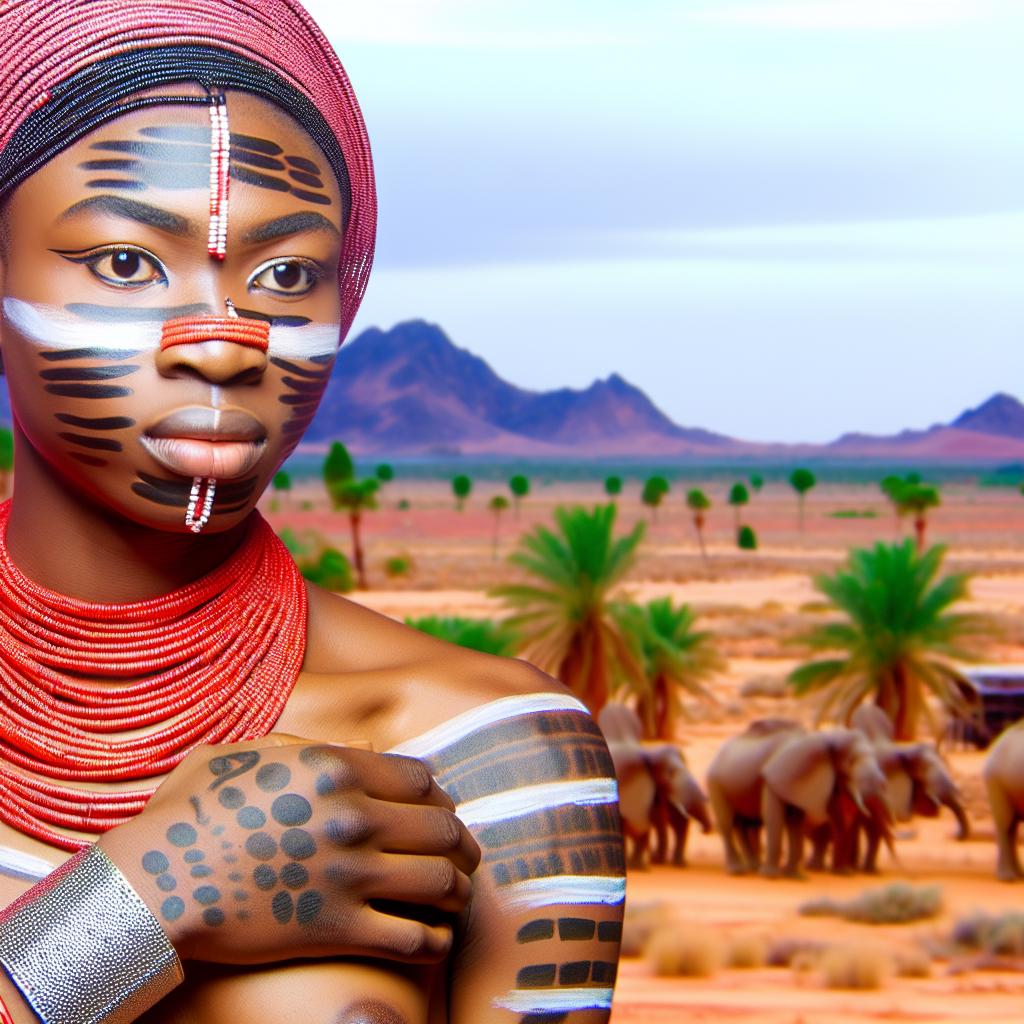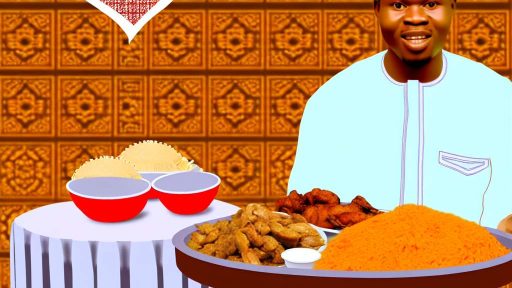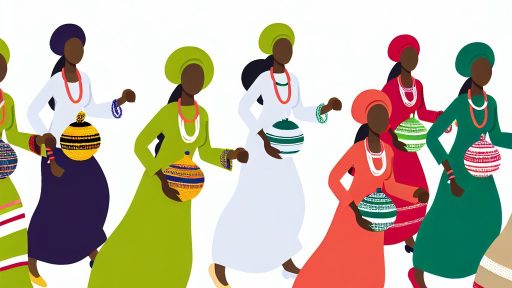Introduction to Tribal Identity in Nigeria
Tribal identity plays a vital role in the social fabric of Nigeria.
The nation is home to over 250 ethnic groups, each with unique traditions.
These diverse cultures influence various aspects of life, particularly marriage.
Marriage serves as a crucial event that strengthens tribal ties.
Thus, it reflects communal values and beliefs integral to each tribe.
Significance of Tribal Identity in Marriage
Marriage in Nigeria often transcends individual unions.
It is viewed as a merging of families and clans.
Consequently, it reinforces tribal solidarity and cultural continuity.
During weddings, specific rituals honored by each tribe take precedence.
These rituals highlight the tribe’s history and traditions.
Traditional Rituals and Customs
Many Nigerian tribes conduct elaborate marriage ceremonies.
For example, the Yoruba include the “introduction” ceremony.
This rite is essential for both families to meet and approve the union.
In contrast, the Igbo practice the “bride price” negotiation.
This involves paying a fee to the bride’s family to show commitment.
Impact of Tribal Identity on Partner Selection
Tribal identity greatly influences mate selection in Nigeria.
Many individuals prefer partners from their own ethnic backgrounds.
This choice fosters familiarity and mutual understanding.
Moreover, families often play a significant role in these decisions.
They seek compatibility based on shared customs and traditions.
Challenges of Inter-tribal Marriages
While inter-tribal marriages are becoming more common, challenges persist.
Families may oppose unions with different tribal affiliations.
This hesitation stems from cultural differences and mistrust.
Moreover, individuals risk losing familial support in such unions.
Despite these challenges, many couples navigate the complexities successfully.
Understanding Major Tribes in Nigeria and Their Marriage Customs
Overview of Nigerian Tribes
Nigeria is home to over 250 ethnic groups, each with unique traditions.
The major tribes include the Hausa, Yoruba, and Igbo, among others.
These groups have distinct marriage customs reflecting their cultural identities.
The Hausa Tribe
The Hausa tribe is primarily located in Northern Nigeria.
Marriage in Hausa culture involves elaborate ceremonies and gift exchanges.
Traditionally, the groom pays a dowry, showcasing his commitment.
Furthermore, polygamy is accepted, with men having multiple wives.
Family approval plays a significant role in the marriage process.
The Yoruba Tribe
The Yoruba tribe is prominent in Southwestern Nigeria.
Yoruba marriages are rich in rituals and often involve a pre-wedding engagement.
Customs like “打个招呼” (introduction of the couple) occur before the wedding day.
The couple’s families engage in symbolic gift-giving, called “bride price.”
This reflects the deeper familial connections valued in Yoruba culture.
The Igbo Tribe
The Igbo tribe primarily resides in Southeastern Nigeria.
Marriage is considered a significant milestone for individuals in Igbo culture.
An important aspect includes the traditional marriage ceremony called “Igba Nkwu.”
This event showcases the groom’s ability to provide for his bride.
Additionally, family and community play crucial roles in the marriage process.
Other Notable Tribes
Beyond the major tribes, several other groups contribute to Nigeria’s marriage customs.
The Efik and Ibibio tribes have unique marriage practices along the coast.
The Berom and Tiv tribes from the Middle Belt also have rich traditions.
Each of these groups showcases distinct cultural elements during marriages.
Understanding Tribal Influence
Nigerian marriages provide a lens into tribal identity.
These customs reflect personal choices and cultural heritage.
Understanding these traditions fosters greater appreciation and respect.
How Tribal Affiliation Influences Marriage Practices and Rituals
Understanding Tribal Influence
Tribal affiliation plays a significant role in shaping marriage practices in Nigeria.
The various tribes each have unique customs that reflect their cultural identity.
For instance, the Igbo tribe highly values the traditional bride price, known as “isi ezi.”
This practice symbolizes the family’s acceptance of the marriage.
In contrast, the Yoruba tribe emphasizes elaborate wedding ceremonies that include the “Introduction” ceremony.
This ceremony serves to introduce the couple’s families formally.
Furthermore, the Fulani tribe has distinctive rituals that reflect their nomadic lifestyle.
Cultural Rituals in Marriage
Cultural rituals vary significantly among different tribes in Nigeria.
In the Hausa community, for example, traditional wedding rites include “Khadija” and “Bashir” ceremonies.
These events signify the acceptance of the couple by both families.
On the other hand, the Efik tribe practices a unique “Calabar festival” during weddings.
This festival showcases traditional music, dance, and foods associated with the tribe.
Such rituals not only highlight cultural identity but also strengthen community bonds.
The Role of Family in Marriage
Family involvement is paramount in Nigerian marriages.
Each tribe has specific expectations regarding parental consent and participation.
For example, the Ijaw tribe places heavy importance on family approval before a marriage ceremony.
Thus, potential couples often seek blessing from their elders.
This practice underscores respect for traditional authority within the tribe.
In many tribes, families will negotiate marriage terms to ensure mutual benefits.
Adapting to Modern Influences
Modernity influences traditional marriage practices in various ways.
Younger couples often blend traditional customs with contemporary practices.
For instance, many now incorporate civil weddings alongside traditional ceremonies.
This adaptation can help ease potential conflicts between generations.
While maintaining tribal identity, couples also embrace modern values.
As a result, marriage practices evolve while still honoring cultural heritage.
Gain More Insights: Why Marriage is Central to Nigerian Community Celebrations
The Role of Bride Price and Dowry in Reflecting Tribal Values
Understanding Bride Price
Bride price serves as a significant cultural tradition in many Nigerian tribes.
This custom typically involves the transfer of wealth from the groom’s family to the bride’s family.
It symbolizes respect, commitment, and the value placed on the bride.
Furthermore, bride price solidifies kinship ties between families.
In many cases, it represents the groom’s ability to provide for the bride.
Dowry Practices in Various Tribes
Dowry varies widely among different tribes in Nigeria, reflecting unique cultural values.
For instance, among the Igbo, the dowry is often a substantial payment.
This payment can comprise money, items, or livestock, depicting wealth and status.
On the other hand, among the Hausa, dowries may include household items and cash gifts.
These differences highlight the diversity in marital customs across Nigeria.
Tribal Identity and Marital Customs
Both bride price and dowry are deeply intertwined with tribal identity.
They underscore the values and socio-economic conditions of each tribe.
This practice fosters a sense of unity and cultural heritage among tribal members.
Moreover, it influences family dynamics and gender roles within the community.
As such, these customs play a crucial role in maintaining tribal identity.
The Economic Implications of Bride Price and Dowry
Bride price and dowry also have significant economic implications.
They often reinforce traditional gender roles, impacting women’s economic status.
Women may face pressures related to financial expectations from families.
Additionally, the costs associated with these concepts can lead to financial strain on grooms.
This aspect emphasizes the intersection of culture and economics in marital arrangements.
Contemporary Perspectives on Bride Price and Dowry
Modern views on bride price and dowry are changing within Nigerian society.
Some individuals and families are advocating for reforms in these traditions.
They argue for equitable practices that promote gender equality.
Additionally, younger generations often seek to balance tradition with modern values.
This evolving perspective reflects broader societal shifts within Nigeria.
Discover More: How Nigerian Culture Influences Gender Roles in Marriage
Inter-tribal Marriages: Challenges and Benefits for Cultural Integration
Understanding the Current Landscape
Nigeria showcases a rich tapestry of tribes and cultures.
Each tribe has unique traditions and practices, influencing marriage customs.
Inter-tribal marriages have gained popularity in recent years.
These marriages often symbolize cultural exchange and unity.
However, they also face challenges that highlight cultural differences.
Challenges of Inter-tribal Marriages
One challenge is the clash of cultural beliefs.
Different tribes may have distinct views on roles and responsibilities.
These differing expectations can create misunderstandings.
Language barriers may also arise, complicating communication.
Family opposition can create additional stress for couples.
Traditional practices from both sides may not align seamlessly.
The Benefits of Cultural Integration
Inter-tribal marriages often promote cultural integration.
They allow individuals to learn and appreciate diverse customs.
In addition, these unions can lead to broader social networks.
New traditions may emerge, enriching familial and community life.
Moreover, such marriages can decrease tribal tensions.
Ultimately, they foster a sense of national unity among diverse groups.
Success Stories
Many couples successfully navigate their cultural differences.
For instance, Adaeze and Tunde blend the Yoruba and Igbo cultures.
They celebrate both traditions during special occasions.
Another couple, Ifeyinwa and Nnamdi, highlight the beauty of their unique backgrounds.
Their marriage showcases how love can transcend cultural divides.
Promoting Awareness and Acceptance
Education plays a crucial role in promoting acceptance.
Workshops and community programs can foster understanding.
Sharing stories of inter-tribal couples can challenge stereotypes.
Encouraging dialogue among families can mitigate misunderstandings.
Ultimately, societal attitudes toward inter-tribal marriages must evolve.
Uncover the Details: The Role of Culture in Shaping Modern Nigerian Marriages

Tribal Identity’s Impact on Roles in Nigerian Marriages
Understanding Tribal Identity
Tribal identity significantly shapes social interactions in Nigerian marriages.
This identity influences traditional beliefs and cultural practices.
Each tribe possesses unique customs that guide marriage rituals.
Furthermore, these customs dictate gender roles within marriage.
The Role of Women
In many Nigerian tribes, women’s roles are often tied to family responsibilities.
For example, women typically manage households and nurture children.
They also play a crucial part in maintaining cultural traditions.
Conversely, women’s participation in decision-making varies across tribes.
Some tribes empower women to contribute economically and socially.
This shift promotes gender equality in certain communities.
The Role of Men
Traditionally, men are viewed as the primary providers in Nigerian marriages.
They are typically responsible for financial support and protection.
In addition, men often take on leadership roles within the family.
However, this role can evolve in urban settings.
Many men now share household responsibilities with their partners.
Intersection of Gender Roles and Tribal Identity
Tribal identity shapes the expectations placed on both genders.
In some tribes, distinct roles reinforce traditional hierarchies.
In others, blending of roles fosters partnership in marriage.
The context of each tribe influences these dynamics significantly.
Implications of Tribal Identity in Nigerian Marriages
Tribal identity profoundly affects gender roles in Nigerian marriages.
Understanding this relationship is vital for appreciating cultural diversity.
As societies evolve, so do the expectations within marriages.
Discover More: How Nigerian Marriage Traditions Reflect Family Values and Heritage
Celebration of Tribal Heritage through Marriage Ceremonies and Traditions
Significance of Traditional Ceremonies
Traditional marriage ceremonies serve as a vital expression of tribal identity.
These events honor cultural heritage and community values.
Families often participate extensively in the planning and execution.
Rituals within the ceremonies reinforce shared beliefs and practices.
Customs and Rituals Unique to Each Tribe
Each tribe possesses distinct customs celebrated during marriages.
For example, the Yoruba incorporate elaborate dressing and ceremonies.
They value “the bride price” as a significant cultural tradition.
Igbo marriages showcase vibrant attire and extensive family involvement.
Furthermore, the Efik are known for their traditional wedding rites.
These include the unique “introduction” ceremony that unites both families.
Role of Music and Dance
Music and dance play a crucial role in celebrating marriages.
These elements enhance the joyful atmosphere and reflect tribal traditions.
Each tribe’s music often tells stories or conveys historical significance.
Dancing allows guests to engage and express their happiness collectively.
Symbolism in Attire and Accessories
The attire worn during these ceremonies holds deep symbolism.
Bright colors often represent joy, wealth, and community strength.
For instance, the Hausa brides wear exquisite, intricate patterns.
Accessories, like beads and jewelry, signify the bride’s family heritage.
Community Involvement and Contributions
Community involvement is essential in Nigerian marriage ceremonies.
Neighbors and friends contribute to the event, enhancing communal bonds.
This practice reflects the collective nature of tribal societies.
Everyone plays a role in making the celebration memorable.
Modern Influences and Adaptations
Modern influences have begun to shape traditional marriage ceremonies.
Many couples blend contemporary elements with their tribal customs.
For instance, digital invitations replace traditional written ones.
However, core traditions often remain integral to the celebrations.
This blending showcases a respect for heritage while embracing modernity.
Modern Influences on Traditional Marriage Practices Among Nigerian Tribes
Changing Societal Norms
Modernization transforms traditional marriage practices in Nigeria.
Urbanization influences how communities view and conduct marriages.
Younger generations often seek autonomy in partner selection.
This trend leads to a blend of traditional and contemporary customs.
The Impact of Globalization
Global cultural exchange introduces new marriage concepts.
Western ideals increasingly shape Nigerian marital expectations.
For example, dating culture becomes popular among urban youth.
Moreover, social media plays a significant role in connecting partners.
Economic Factors
Economic conditions significantly influence marriage practices.
Increased financial demands often delay marriage plans.
Many couples focus on career growth before settling down.
This shift reflects changing priorities in Nigerian society.
Religious Influences
Religious beliefs strongly impact marriage customs in Nigeria.
Islamic and Christian traditions often guide marital ceremonies.
Interfaith marriages illustrate a growing trend of acceptance.
Consequently, diverse religious practices increasingly blend.
Women’s Empowerment
Women are now more empowered to assert their preferences.
Education promotes their understanding of rights in marriage.
Consequently, they feel more confident in choosing partners.
This empowerment reshapes traditional views on marital roles.
The Role of Technology
Technology significantly impacts how couples meet and marry.
Online dating platforms become popular among many tribes.
This accessibility broadens the pool of potential partners.
Furthermore, technology facilitates long-distance relationships.
Cultural Preservation Efforts
Despite modernization, many communities prioritize cultural preservation.
Some tribes actively promote traditional ceremonies and rituals.
These efforts highlight the importance of cultural identity.
Moreover, they encourage younger generations to appreciate their heritage.
Additional Resources
Chapter 3. Culture – Introduction to Sociology – 1st Canadian Edition
The Role of Cultural Beliefs, Norms, and Practices in Nigerian …




